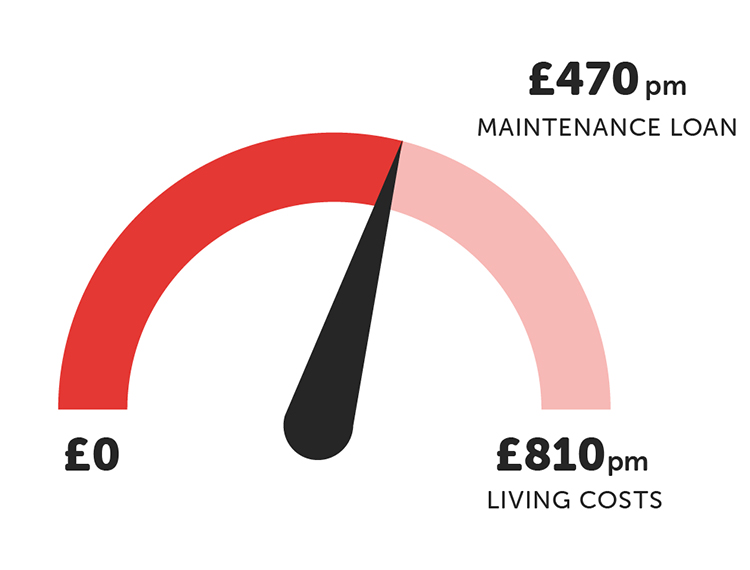How have students made up for lost income due to COVID-19?

In a new survey by @SaveTheStudent, it’s been revealed that noticeably fewer students have been able to make money from a part-time job in 2020/21 compared to the previous academic year.
While 66% of students in the National Student Money Survey 2021 said they make money from part-time jobs, this is down from 74% who had said the same in the 2020 survey.
As well as this, the survey found that, for many, the Maintenance Loan is simply not big enough. The average student spends £810 a month on living costs, while only receiving £470 a month in Maintenance Loan, therefore experiencing a monthly shortfall of £340.
For students who struggle to make ends meet while facing a very challenging part-time job market, where do they turn for money?
More students are investing in cryptocurrencies
Alongside the drop in the proportion of students who said they have a part-time job, there has been an increase in the percentage who said that they make money from investing in cryptocurrencies. In fact, this figure has tripled since the 2020 survey, up from 2% to 6%.
As reported by the BBC, the increased proportion of students making money this way does raise concerns that not all of those who get involved in trading cryptocurrencies are fully informed about the risks.
There’s a possibility that some students will lose money that they need as a result of their investments going down in value.
For the growing proportion of students who decide to invest in cryptocurrencies, it’s essential that they are given an in-depth, balanced understanding of how the trades work and the risks involved, with a particular emphasis on never investing more money than they’re prepared to lose.
If university support services are not yet in a position where they feel able to effectively advise students on issues related to cryptocurrency, this survey indicates that this is an area of student money support that is increasingly needed.
Jake Butler, Save the Student’s money expert, says:
“In a year when things have been turned on their head, university students very clearly seem to be among the worst affected.
“As we’ve found, the funding on offer to the average student is only slightly more than half of their living costs. With an unstable part-time job market as well as some parents losing earnings due to the pandemic, the usual funding sources for students bridging the financial shortfall have become hard to come by.
“There is continued uncertainty over what to expect from this coming academic year and the government has done very little to put students at ease.”
Students need to be informed about bursaries, grants and scholarships
Worryingly, the survey found that 76% of students have considered dropping out of university at some point. Among the most common reasons, 61% said they have considered it because of their mental health, 53% because of COVID-19 and 41% because of money worries.
As discussed earlier, for the average student, the Maintenance Loan falls significantly short of covering their monthly living costs. This, combined with the knowledge that around two in five of those in the survey have considered dropping out due to money worries, it is clear that students need to be made aware of additional forms of funding, such as bursaries, grants and scholarships.
These sources of funding do not need to be repaid and could make a huge difference to a student’s financial situation.
However, 43% of students in the survey felt they weren’t made aware of funding options available to them, indicating that the information about bursaries, grants and scholarships isn’t currently as readily available as it arguably should be.
Much needs to be done to address the issues with Student Finance in the UK, and it’s essential that the government takes notice of the widespread financial struggles that students across the country are facing.
Sara Khan, NUS’ Vice President for Liberation and Equality, says:
“Education is a right that students should access freely from cradle to grave.
“The UK government must abolish tuition fees, fund Maintenance Grants for students in place of the profit-driven Student Loan system, and ensure our education system is properly funded, lifelong, accessible and democratic.”











Responses